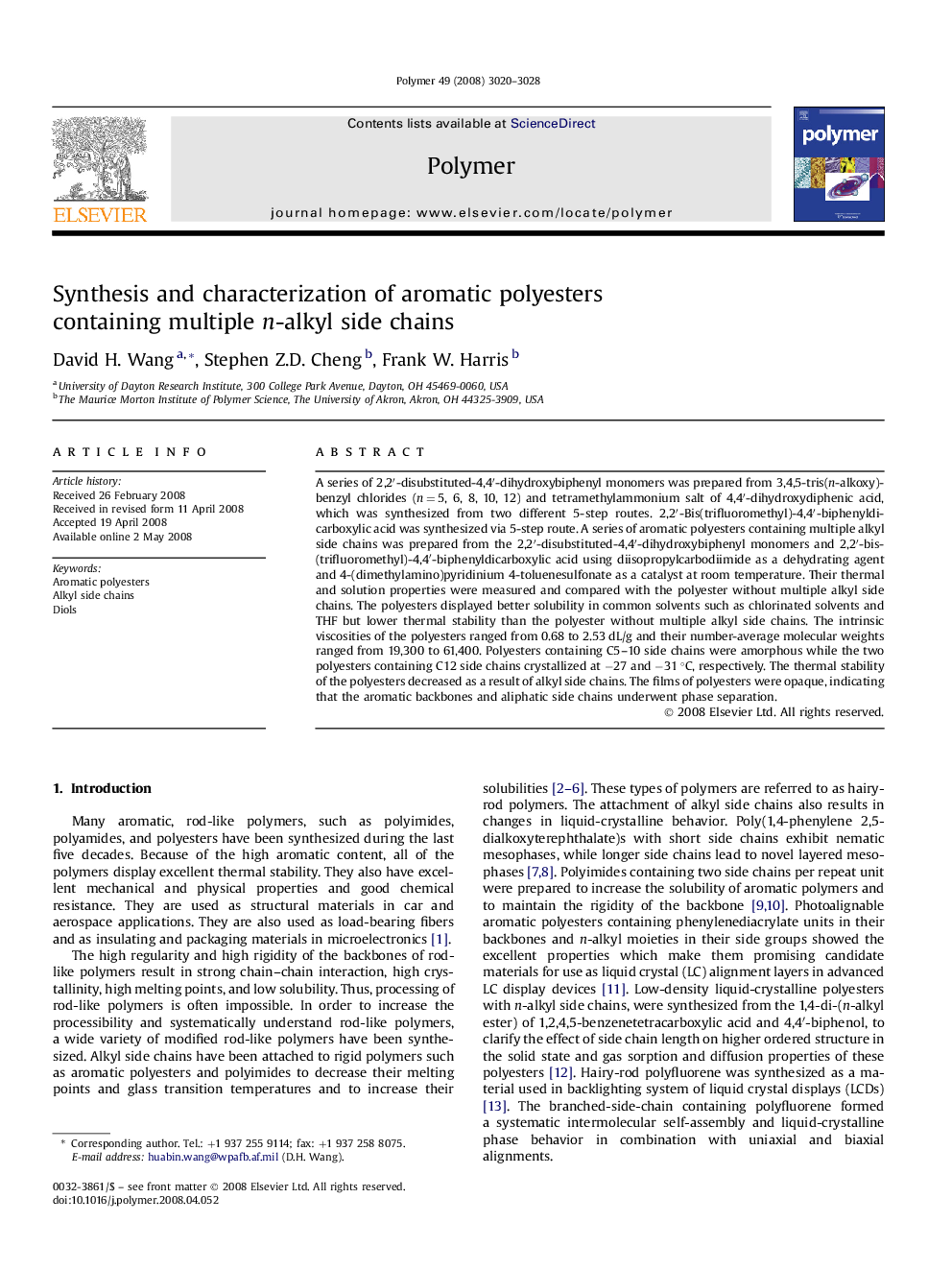| Article ID | Journal | Published Year | Pages | File Type |
|---|---|---|---|---|
| 5186734 | Polymer | 2008 | 9 Pages |
A series of 2,2â²-disubstituted-4,4â²-dihydroxybiphenyl monomers was prepared from 3,4,5-tris(n-alkoxy)benzyl chlorides (n = 5, 6, 8, 10, 12) and tetramethylammonium salt of 4,4â²-dihydroxydiphenic acid, which was synthesized from two different 5-step routes. 2,2â²-Bis(trifluoromethyl)-4,4â²-biphenyldicarboxylic acid was synthesized via 5-step route. A series of aromatic polyesters containing multiple alkyl side chains was prepared from the 2,2â²-disubstituted-4,4â²-dihydroxybiphenyl monomers and 2,2â²-bis(trifluoromethyl)-4,4â²-biphenyldicarboxylic acid using diisopropylcarbodiimide as a dehydrating agent and 4-(dimethylamino)pyridinium 4-toluenesulfonate as a catalyst at room temperature. Their thermal and solution properties were measured and compared with the polyester without multiple alkyl side chains. The polyesters displayed better solubility in common solvents such as chlorinated solvents and THF but lower thermal stability than the polyester without multiple alkyl side chains. The intrinsic viscosities of the polyesters ranged from 0.68 to 2.53 dL/g and their number-average molecular weights ranged from 19,300 to 61,400. Polyesters containing C5-10 side chains were amorphous while the two polyesters containing C12 side chains crystallized at â27 and â31 °C, respectively. The thermal stability of the polyesters decreased as a result of alkyl side chains. The films of polyesters were opaque, indicating that the aromatic backbones and aliphatic side chains underwent phase separation.
